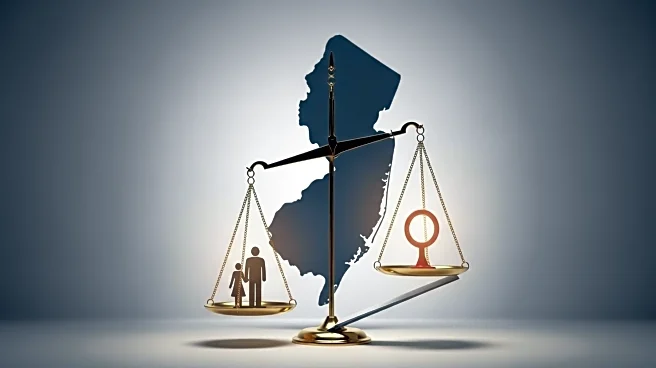What is the story about?
What's Happening?
A recent poll conducted by the non-profit education group 'yes. every kid.' indicates that Rep. Mikie Sherrill is leading Republican Jack Ciattarelli in the New Jersey governor race with a 48%-41% margin. The poll surveyed 704 likely voters between September 20-22, with a margin of error of +/-3.7%. The results show unaffiliated voters evenly split between the two candidates, while 10% remain undecided. This poll aligns with previous surveys that have shown Sherrill maintaining a lead over Ciattarelli. Additionally, the poll highlights voter support for policies such as refundable tax credits for education expenses and open enrollment in state schools.
Why It's Important?
The poll results are significant as they reflect the current political climate in New Jersey and the potential direction of the state's governance. Mikie Sherrill's lead suggests a favorable position for her campaign, which could influence policy decisions and legislative priorities if she wins the governorship. The support for educational reforms indicates a public demand for increased educational freedom and choice, which could shape future policy debates and initiatives. The outcome of this race will have implications for New Jersey's political landscape, affecting both local and national political dynamics.
What's Next?
As the election approaches, both candidates are likely to intensify their campaign efforts to sway undecided voters and solidify their support base. The focus on educational policies may become a central theme in the debates and campaign strategies. Stakeholders, including educators, parents, and policymakers, will be closely monitoring the candidates' positions on these issues. The election results will determine the state's leadership and potentially influence broader political trends in the region.
Beyond the Headlines
The emphasis on educational freedom in the poll results highlights a growing trend towards personalized education options. This shift could lead to long-term changes in how education is structured and funded in New Jersey, with potential ripple effects across the country. The debate over educational policies may also raise ethical questions about access and equity in education, prompting discussions on how to balance choice with fairness.















